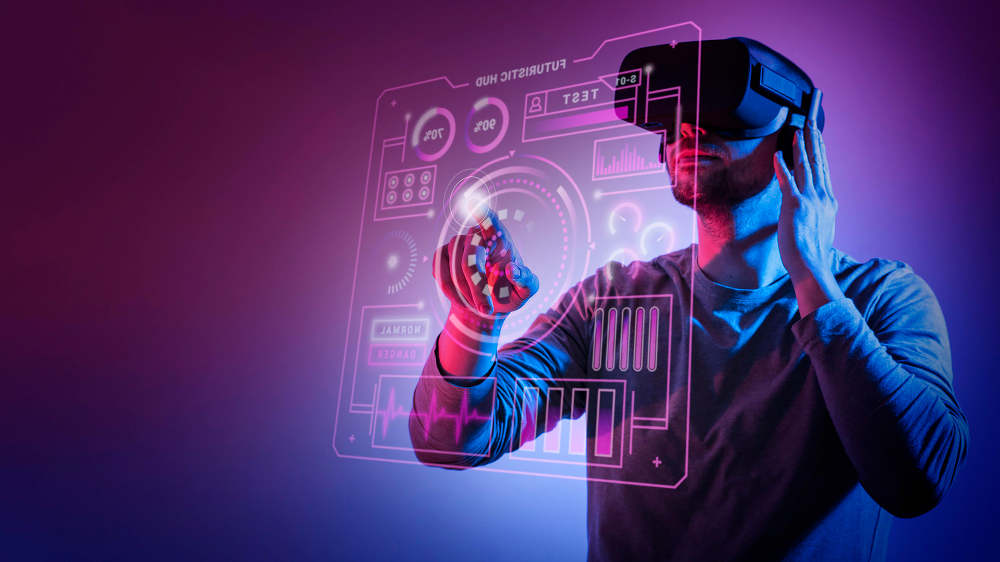
The Next Big Thing in 2025 Tech: 6 Top Tech Trends
Tech trends are set to revolutionize industries, enhance everyday life, and pave the way for the future of innovation!

In 2024, while artificial intelligence dominated the headlines, it was the dominant tech giants that capitalized on the surge in AI interest. The major players in the industry saw substantial gains, like the "Magnificent Seven". These companies harnessed advancements in AI to enhance their market performance, reinforcing their leadership and influence within the technology sector.
As hard as it is to believe, 2025 is fast approaching. This is the ideal time to once again evaluate and highlight the trends that will be most influential in shaping the year ahead.
Monitoring the leading technology trends of this year enables CIOs and IT leaders to ensure that their organizations stay ahead of the curve in future technological innovation. Technology is not only accelerating economic progress but also playing an important role in tackling critical global issues such as climate change and data security.
Capgemini, a global leader in consulting, technology services and digital transformation has unveiled its annual 'TechnoVision Top 5 Tech Trends to Watch in 2025' report, offering valuable insights into emerging technologies. It forecasts, “In 2025, we see AI and Gen AI having a major impact on companies’ priorities and also on many adjacent technology domains, such as robotics, supply chains or tomorrow’s energy mix.”
Technologies to watch in 2025:Tech Trends
- Fusion of Machine and Human Intelligence:
So, in 2025, AI is no longer the future; The convergence of machine intelligence and human cognition will mark a transformative leap in technological innovation. This integration will enhance human abilities by leveraging artificial intelligence (AI) to collaborate with people in areas such as decision-making, creativity, and precision problem-solving.
Example: Brain-computer interfaces (BCIs) like Neuralink, developed by Elon Musk’s company. Neuralink is working on implantable devices that connect the human brain directly to computers, enabling individuals to control devices, communicate, or restore motor functions for those with disabilities.
- Cybersecurity Mesh for Robust Protection
Cybersecurity mesh is a modern approach to security architecture that provides scalable, flexible, and reliable protection for digital assets. It decentralizes security controls by creating a mesh network that integrates security across users, devices, and systems, regardless of their physical or virtual location. This approach enables a more cohesive and adaptive defense mechanism against evolving cyber threats.
Example: With an annual investment of $15 billion and a workforce of 62,000 technologists, JPMorgan Chase leads the charge against cybercrime, surpassing even tech behemoths like Google and Amazon.
- Defending Against Disinformation with Advanced Tools and Technologies
The rapid increase of disinformation and deep fakes has accelerated the development of AI-based tools designed to identify and combat false narratives. These technologies play a critical role in preserving genuine processes, ensuring the credibility of media. By leveraging machine learning and natural language processing, these tools can detect patterns of misinformation and identify doctored images or videos, thereby safeguarding information credibility.
Example: Platforms like NewsGuard utilize a team of journalists and AI-driven analytics to rate the trustworthiness of websites, helping users differentiate between reliable and misleading sources.
- Next-Gen Tools for Software Development
The landscape of software development is constantly evolving with the introduction of innovative tools and technologies aimed at improving productivity, collaboration, and efficiency.
Example: Platforms such as OutSystems and Mendix are enabling non-developers to build applications with minimal coding expertise. By offering drag-and-drop interfaces and pre-built templates, these tools accelerate the development of enterprise applications, allowing businesses to quickly prototype and deploy solutions.
- Artificial Intelligence and Machine Learning for Personalization
AI and Machine Learning are increasingly being used to personalize experiences across various industries. These technologies drive better user experiences, stronger customer relationships, and greater business profitability by tailoring interactions and recommendations.
Ex: In e-commerce, platforms like Amazon and Netflix leverage AI to recommend products and content based on user preferences and behaviors, enhancing user engagement and boosting sales. Digital advertising has also been transformed, with platforms like Facebook and Google using ML to serve highly targeted ads, leading to higher click-through rates.
- The Advancement of Quantum Computing
The UN has declared 2025 as the International Year of Quantum Science and Technology, marking a significant moment for quantum computing. While the technology hasn’t yet reached the mainstream, 2024 saw promising real-world applications, particularly in drug discovery and solving complex optimization problems in sectors like finance and logistics.
By 2025, its influence is expected to grow, revolutionizing industries like climate modeling, encryption etc. However, many caution that this advancement could lead to "Q-Day," when quantum computers are powerful enough to break current encryption methods, posing risks to privacy and security.
Example: A key example of quantum computing in action is Google's quantum processor, Sycamore. In 2019, Google claimed to achieve quantum supremacy with Sycamore, solving a problem in just 200 seconds that would take the world’s fastest supercomputers thousands of years to compute.
Conclusion
So, Why are these new technology trends important? According to recent studies, AI and automation could impact up to 30% of tasks in nearly 60% of occupations by 2025. In the next decade, advancements like artificial intelligence (AI), quantum computing, blockchain, and biotechnology are expected to address complex global challenges, from healthcare to climate change.
As AI becomes more integrated into decision-making and automation, the need for expertise in this field will rise. Cybersecurity will continue to be crucial due to increasing threats to digital infrastructure. Quantum computing will be sought after to solve complex problems beyond current computing capabilities.